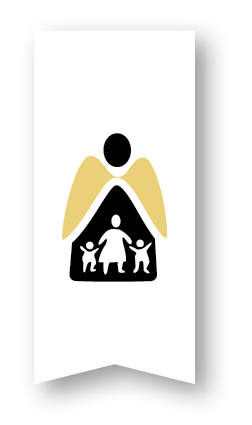Addiction is a complex disease that affects people of all genders. However, women face unique challenges and experiences when grappling with substance abuse. This article will delve into the statistics surrounding women and addiction in the United States, with a focus on single women and mothers.
The Rising Tide of Women’s Addiction
While men have historically been more likely to struggle with substance abuse, the number of women affected by addiction has been steadily increasing. According to the National Institute on Drug Abuse (NIDA), women are more likely than men to develop substance use disorders when they do initiate drug use.
- Unique Biological Factors: Women’s bodies metabolize drugs differently than men’s, leading to quicker addiction and more severe consequences.
- Sociocultural Factors: Women often face unique stressors, such as domestic violence, poverty, and childcare responsibilities, which can contribute to substance abuse as a coping mechanism.
- Trauma and Adverse Childhood Experiences (ACEs): Women are more likely to experience trauma, such as sexual assault or domestic violence, which can increase the risk of substance abuse as a coping mechanism.
The Impact on Single Women and Mothers
Single women and mothers, in particular, are vulnerable to addiction due to the added pressures of independent living and raising children.
- Stress and Anxiety: The demands of single parenthood can lead to increased stress and anxiety, which can be alleviated temporarily through substance use.
- Social Isolation: Single women and mothers may feel isolated and lonely, making it easier to turn to substances for comfort.
- Financial Strain: Financial difficulties can exacerbate stress and anxiety, leading to increased substance use.
The Impact on Children
When a mother struggles with addiction, her children are often the ones who suffer the most. The negative consequences for children include:
- Emotional Trauma: Children may experience feelings of fear, shame, and abandonment.
- Behavioral Problems: Children may exhibit behavioral difficulties, such as aggression, defiance, or withdrawal.
- Academic Struggles: Substance abuse can negatively impact a child’s academic performance.
- Increased Risk of Future Addiction: Children of addicted parents are more likely to develop substance abuse problems themselves.
Seeking Help and Recovery
If you or someone you know is struggling with addiction, it is essential to seek professional help. Treatment programs specifically designed for women can address the unique challenges they face, including:
- Trauma-Informed Care: This approach recognizes the role of trauma in addiction and addresses it through therapy and other interventions.
- Parenting Support: Programs that provide parenting education and support can help women develop healthy parenting skills.
- Childcare Services: Access to affordable and reliable childcare can enable women to focus on their recovery.
By raising awareness and providing support, we can help women overcome addiction and build healthier, happier lives for themselves and their families.
References:
- National Institute on Drug Abuse (NIDA)
- Substance Abuse and Mental Health Services Administration (SAMHSA)
Frequently Asked Questions: Women and Addiction in America
Why is addiction among women increasing?
Addiction among women is rising due to a combination of biological, psychological, and social factors. Women often develop substance use disorders faster than men and may use substances to cope with trauma, stress, or life pressures like caregiving and financial hardship.
What makes women more vulnerable to substance abuse?
Women metabolize drugs differently, making them more susceptible to addiction. They also face higher rates of trauma, such as domestic violence and sexual assault, and may experience social stressors like poverty and childcare responsibilities that contribute to substance use.
How does addiction impact single women and mothers?
Single women and mothers often face heightened stress, social isolation, and financial struggles. These challenges can increase the risk of turning to substances as a form of relief or escape.
What are the effects of a mother’s addiction on her children?
Children of mothers struggling with addiction may experience emotional trauma, behavioral issues, academic struggles, and a higher risk of developing addiction later in life.
What types of addiction treatment are most effective for women?
Programs tailored to women often include trauma-informed care, parenting support, and childcare services. These components address the root causes of addiction and support long-term recovery.
Why is trauma-informed care important in women’s recovery?
Trauma-informed care recognizes that many women with substance use disorders have experienced trauma. It provides a safe and supportive environment to heal underlying emotional wounds while addressing addiction.
How can parenting support help mothers in recovery?
Parenting support helps mothers develop healthy, effective parenting skills and rebuild trust with their children, creating a more stable family environment.
Are there free or accessible recovery programs for mothers?
Yes, some programs—like Freedom House—offer no cost after admission*, Christ-centered, long-term residential recovery that allows mothers to heal while keeping their children with them. These programs remove financial barriers and provide housing, counseling, and life-skills training.
Where can I find help for addiction or support someone I love?
If you or someone you know needs support, visit helpfreedomhouse.org to learn more about compassionate, family-focused recovery options for women and children.
*There is a one-time admission fee under $1,000 prior to admission to the long-term program, but once in the program all standard living expenses are covered for the woman and her children. If this fee is a barrier to the joining the program, please let us know so we can discuss options during the application process.





